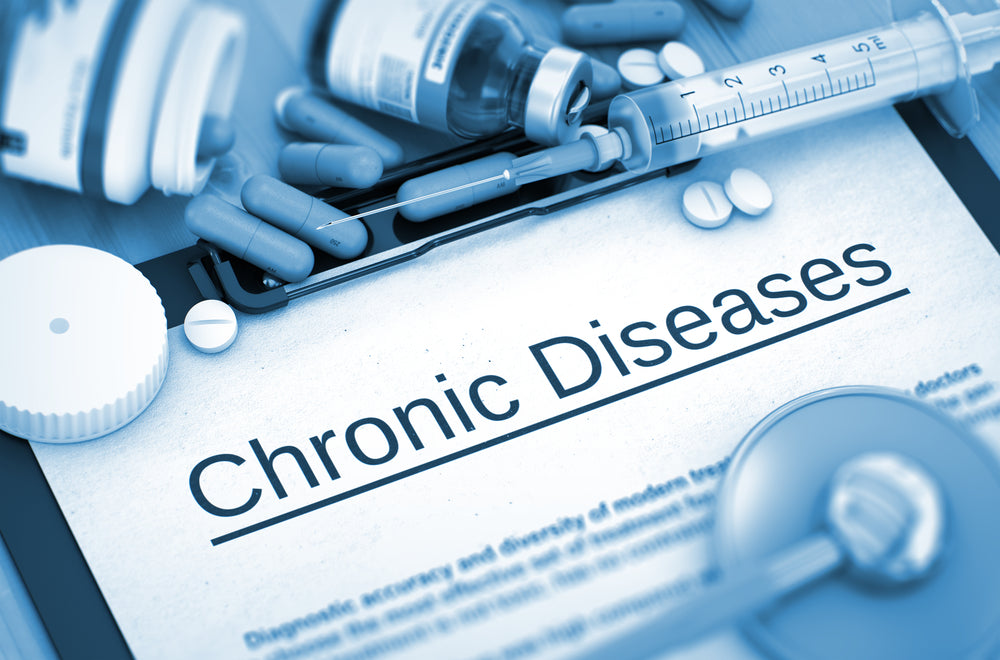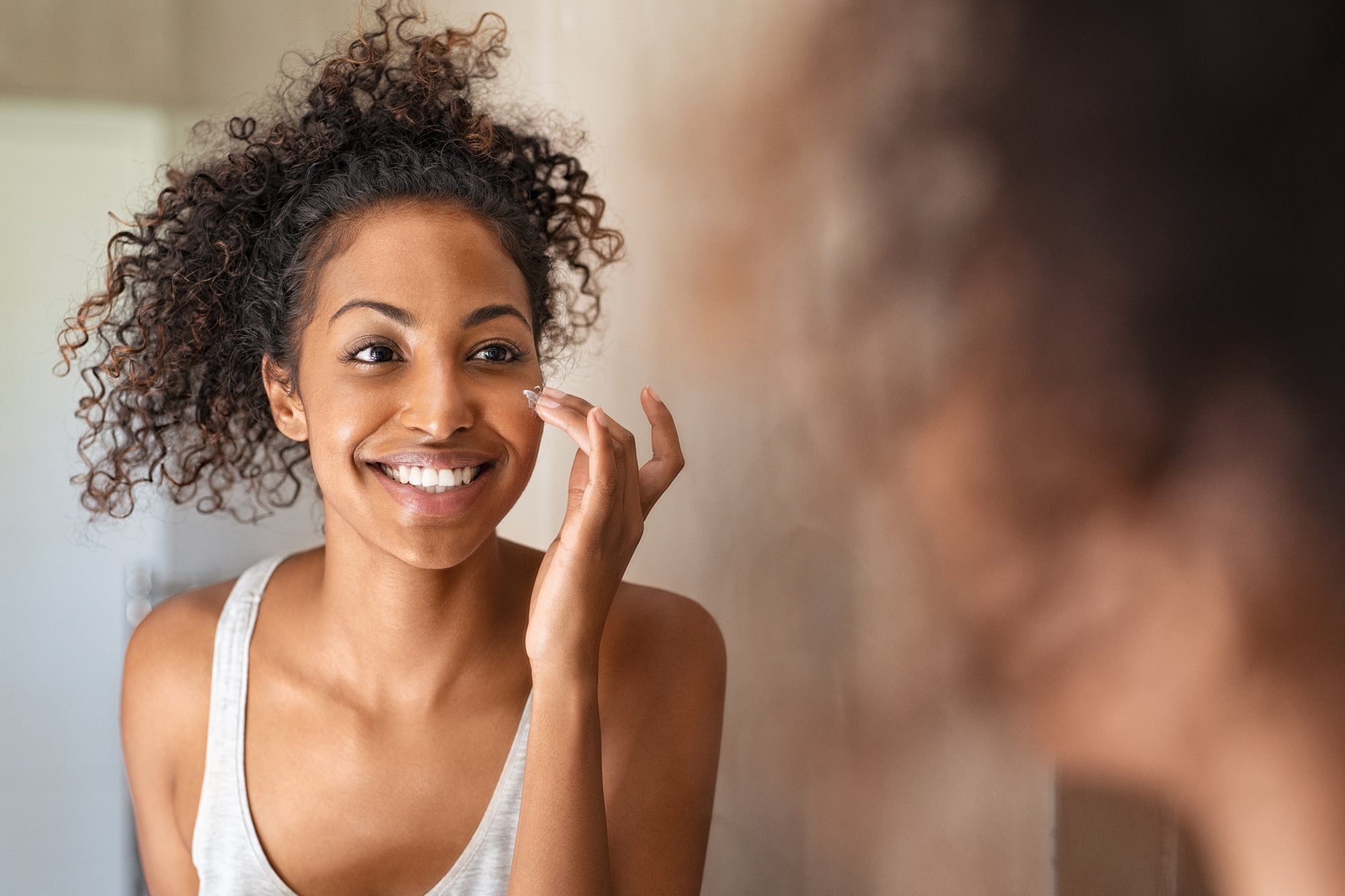Written by Cliff Harvey
Until recently, sleep was perhaps the most under-recognised piece of the health puzzle. It’s not that it was completely ignored, but the conversation generally revolved mostly around diet and exercise. Now, we are beginning to see, more and more, the enormous role that healthy sleeping patterns play in our overall health and performance.
What happens when we sleep?
When we sleep, our body disables sensory and muscle activity and we enter an altered state of consciousness.
During sleep, the body accelerates its recovery by building tissue and restoring immune and hormone functions and removing toxins from the brain and nervous system by way of a rhythmic ‘washing’ of the brain by the glymphatic (glial + lymphatic) system.
When we are asleep, we go through several phases of sleep including those categorised by rapid eye movement (REM), and non-REM sleep.
Within minutes we enter stage one sleep, characterised by alpha and theta brain waves. After several minutes of light, stage one sleep, we enter stage two. And ‘deep sleep’ (also called slow-wave sleep) involves stage three and four. In these stages, muscle activity is inhibited, and it is harder to awaken. About 90 minutes after falling asleep we then enter REM sleep characterised by rapid, jerking movements of the eyes. In this phase, the brain reactivates (most dreaming occurs during REM sleep) and this plays an important role in learning and memory, as the brain processes and organises information during this phase.


The quality of a person’s sleep (including adequate REM and deep sleep) is also extremely important. While there is no consensus on exactly how much REM and deep sleep we require, deep sleep should account for at least 13% of total sleep duration, while REM sleep typically accounts for at least 20% of sleep in healthy people2.
Note: There can also be significant variations between people, and while most of us probably do best around the norms suggested above, it is known that genetic variability between people exists and some thrive on greater or lesser sleep times and different sleep patterns3.
The effects of sleep deprivation on health
Both short and long sleep durations are associated with poorer health and increased mortality risk4-6, and while we need to be aware the correlation does not always equal causation, the evidence is consistent enough that it is highly likely that poor sleep can precipitate poor health. Conversely, illnesses and health conditions can affect sleep (through physical pain and discomfort or mental and emotional anguish) but conversely, leading to a vicious cycle.
Reviews of the evidence have suggested a link between poor sleep (either length or quality) and a range of conditions, including:
- Chronic pain and arthritis7
- ADHD8
- Heart disease and stroke9-10
- Reduced cognition and brain health11-18
- Dementia, Alzheimer’s and Parkinson’s disease18-20
- Diabetes21-22
- Increased inflammation23
- Depression, bipolar disorder, and anxiety24-28
- Reduced mood29
- Multiple sclerosis (MS)30
- Weight gain and obesity31-33
Interestingly, loss of sleep is likely to also result in a lesser desire to exercise and eat well.34-35 It has, for example, been shown that partial sleep deprivation can result in people eating more, choosing to eat fattier foods that are lower in protein, 36 and snack and drink more soda.37 This relationship is bidirectional, as a poor diet also likely leads to poorer sleep…and so, the cycle continues!35 On the other hand, getting adequate sleep is associated with a higher intake of fruits and vegetables.37
Sometimes sleep deprivation is unavoidable, however when it does occur it is important that we try our best to make healthy food choices in an effort to break the bidirectional poor sleep-poor diet cycle! If you feel that you are struggling to meet your nutrition needs through diet, you may like to consider a multinutrient supplement such as Nuzest Good Green Vitality as ‘nutritional insurance’ to help fill the nutritional gaps in your diet.
Nuzest recently spoke to five health experts regarding their top tips for achieving a good night’s sleep. Here is what they had to say…
References
1. Hirshkowitz M, Whiton K, Albert SM, Alessi C, Bruni O, DonCarlos L, et al. National Sleep Foundation’s sleep time duration recommendations: methodology and results summary. Sleep Health: Journal of the National Sleep Foundation.1(1):40-3.
2. Altevogt BM, Colten HR. Sleep disorders and sleep deprivation: an unmet public health problem: National Academies Press; 2006.
3. Madrid-Valero JJ, Rubio-Aparicio M, Gregory AM, Sánchez-Meca J, Ordoñana JR. Twin studies of subjective sleep quality and sleep duration, and their behavioral correlates: Systematic review and meta-analysis of heritability estimates. Neuroscience & Biobehavioral Reviews. 2020;109:78-89.
4. Itani O, Jike M, Watanabe N, Kaneita Y. Short sleep duration and health outcomes: a systematic review, meta-analysis, and meta-regression. Sleep Medicine. 2017;32:246-56.
5. Silva AAd, Mello RGBd, Schaan CW, Fuchs FD, Redline S, Fuchs SC. Sleep duration and mortality in the elderly: a systematic review with meta-analysis. BMJ open. 2016;6(2):e008119.
6. Jike M, Itani O, Watanabe N, Buysse DJ, Kaneita Y. Long sleep duration and health outcomes: A systematic review, meta-analysis and meta-regression. Sleep Medicine Reviews. 2018;39:25-36.
7. Ho KKN, Ferreira PH, Pinheiro MB, Aquino Silva D, Miller CB, Grunstein R, et al. Sleep interventions for osteoarthritis and spinal pain: a systematic review and meta-analysis of randomized controlled trials. Osteoarthritis and Cartilage. 2019;27(2):196-218.
8. Lunsford-Avery JR, Krystal AD, Kollins SH. Sleep disturbances in adolescents with ADHD: A systematic review and framework for future research. Clinical Psychology Review. 2016;50:159-74.
9. Yin J, Jin X, Shan Z, Li S, Huang H, Li P, et al. Relationship of Sleep Duration With All‐Cause Mortality and Cardiovascular Events: A Systematic Review and Dose‐Response Meta‐Analysis of Prospective Cohort Studies. Journal of the American Heart Association. 2017;6(9):e005947.
10. Gottlieb E, Landau E, Baxter H, Werden E, Howard ME, Brodtmann A. The bidirectional impact of sleep and circadian rhythm dysfunction in human ischaemic stroke: A systematic review. Sleep Medicine Reviews. 2019;45:54-69.
11. Leong RLF, Cheng GHL, Chee MWL, Lo JC. The effects of sleep on prospective memory: A systematic review and meta-analysis. Sleep Medicine Reviews. 2019;47:18-27.
12. Short MA, Blunden S, Rigney G, Matricciani L, Coussens S, M. Reynolds C, et al. Cognition and objectively measured sleep duration in children: a systematic review and meta-analysis. Sleep Health. 2018;4(3):292-300.
13. Dutil C, Walsh JJ, Featherstone RB, Gunnell KE, Tremblay MS, Gruber R, et al. Influence of sleep on developing brain functions and structures in children and adolescents: A systematic review. Sleep Medicine Reviews. 2018;42:184-201.
14. van Dalfsen JH, Markus CR. The influence of sleep on human hypothalamic–pituitary–adrenal (HPA) axis reactivity: A systematic review. Sleep Medicine Reviews. 2018;39:187-94.
15. de Bruin EJ, van Run C, Staaks J, Meijer AM. Effects of sleep manipulation on cognitive functioning of adolescents: A systematic review. Sleep Medicine Reviews. 2017;32:45-57.
16. Lo JC, Groeger JA, Cheng GH, Dijk D-J, Chee MWL. Self-reported sleep duration and cognitive performance in older adults: a systematic review and meta-analysis. Sleep Medicine. 2016;17:87-98.
17. Leng Y, McEvoy CT, Allen IE, Yaffe K. Association of Sleep-Disordered Breathing With Cognitive Function and Risk of Cognitive Impairment: A Systematic Review and Meta-analysis. JAMA Neurology. 2017;74(10):1237-45.
18. Bubu OM, Brannick M, Mortimer J, Umasabor-Bubu O, Sebastião YV, Wen Y, et al. Sleep, Cognitive impairment, and Alzheimer’s disease: A Systematic Review and Meta-Analysis. Sleep. 2016;40(1).
19. Shi L, Chen S-J, Ma M-Y, Bao Y-P, Han Y, Wang Y-M, et al. Sleep disturbances increase the risk of dementia: A systematic review and meta-analysis. Sleep Medicine Reviews. 2018;40:4-16.
20. Galbiati A, Verga L, Giora E, Zucconi M, Ferini-Strambi L. The risk of neurodegeneration in REM sleep behavior disorder: A systematic review and meta-analysis of longitudinal studies. Sleep Medicine Reviews. 2019;43:37-46.
21. Anothaisintawee T, Reutrakul S, Van Cauter E, Thakkinstian A. Sleep disturbances compared to traditional risk factors for diabetes development: Systematic review and meta-analysis. Sleep Medicine Reviews. 2016;30:11-24.
22. Lee SWH, Ng KY, Chin WK. The impact of sleep amount and sleep quality on glycemic control in type 2 diabetes: A systematic review and meta-analysis. Sleep Medicine Reviews. 2017;31:91-101.
23. Irwin MR, Olmstead R, Carroll JE. Sleep Disturbance, Sleep Duration, and Inflammation: A Systematic Review and Meta-Analysis of Cohort Studies and Experimental Sleep Deprivation. Biological Psychiatry. 2016;80(1):40-52.
24. Cox RC, Olatunji BO. A systematic review of sleep disturbance in anxiety and related disorders. Journal of Anxiety Disorders. 2016;37:104-29.
25. Pires GN, Bezerra AG, Tufik S, Andersen ML. Effects of acute sleep deprivation on state anxiety levels: a systematic review and meta-analysis. Sleep Medicine. 2016;24:109-18.
26. Bao Y-P, Han Y, Ma J, Wang R-J, Shi L, Wang T-Y, et al. Cooccurrence and bidirectional prediction of sleep disturbances and depression in older adults: Meta-analysis and systematic review. Neuroscience & Biobehavioral Reviews. 2017;75:257-73.
27. Winsper C, Tang NKY, Marwaha S, Lereya ST, Gibbs M, Thompson A, et al. The sleep phenotype of Borderline Personality Disorder: A systematic review and meta-analysis. Neuroscience & Biobehavioral Reviews. 2017;73:48-67.
28. Melo MCA, Garcia RF, Linhares Neto VB, Sá MB, de Mesquita LMF, de Araújo CFC, et al. Sleep and circadian alterations in people at risk for bipolar disorder: A systematic review. Journal of Psychiatric Research. 2016;83:211-9.
29. Konjarski M, Murray G, Lee VV, Jackson ML. Reciprocal relationships between daily sleep and mood: A systematic review of naturalistic prospective studies. Sleep Medicine Reviews. 2018;42:47-58.
30. Hughes AJ, Dunn KM, Chaffee T. Sleep Disturbance and Cognitive Dysfunction in Multiple Sclerosis: a Systematic Review. Current Neurology and Neuroscience Reports. 2018;18(1):2.
31. Miller MA, Kruisbrink M, Wallace J, Ji C, Cappuccio FP. Sleep duration and incidence of obesity in infants, children, and adolescents: a systematic review and meta-analysis of prospective studies. Sleep. 2018;41(4).
32. Wu Y, Gong Q, Zou Z, Li H, Zhang X. Short sleep duration and obesity among children: A systematic review and meta-analysis of prospective studies. Obesity Research & Clinical Practice. 2017;11(2):140-50.
33. Li L, Zhang S, Huang Y, Chen K. Sleep duration and obesity in children: A systematic review and meta-analysis of prospective cohort studies. Journal of Paediatrics and Child Health. 2017;53(4):378-85.
34. Felső R, Lohner S, Hollódy K, Erhardt É, Molnár D. Relationship between sleep duration and childhood obesity: Systematic review including the potential underlying mechanisms. Nutrition, Metabolism and Cardiovascular Diseases. 2017;27(9):751-61.
35. Ward AL, Reynolds AN, Kuroko S, Fangupo LJ, Galland BC, Taylor RW. Bidirectional associations between sleep and dietary intake in 0–5 year old children: A systematic review with evidence mapping. Sleep Medicine Reviews. 2020;49:101231.
36. Al Khatib HK, Harding SV, Darzi J, Pot GK. The effects of partial sleep deprivation on energy balance: a systematic review and meta-analysis. European Journal of Clinical Nutrition. 2017;71(5):614-24.
37. Córdova FV, Barja S, Brockmann PE. Consequences of short sleep duration on the dietary intake in children: A systematic review and metanalysis. Sleep Medicine Reviews. 2018;42:68-84.
38. Bonnar D, Bartel K, Kakoschke N, Lang C. Sleep Interventions Designed to Improve Athletic Performance and Recovery: A Systematic Review of Current Approaches. Sports Medicine. 2018;48(3):683-703.
39. Wang F, Eun-Kyoung Lee O, Feng F, Vitiello MV, Wang W, Benson H, et al. The effect of meditative movement on sleep quality: A systematic review. Sleep Medicine Reviews. 2016;30:43-52.
40. Zou L, Yeung A, Quan X, Boyden SD, Wang H. A Systematic Review and Meta-Analysis of Mindfulness-Based (Baduanjin) Exercise for Alleviating Musculoskeletal Pain and Improving Sleep Quality in People with Chronic Diseases. International Journal of Environmental Research and Public Health. 2018;15(2):206.
41. Haghayegh S, Khoshnevis S, Smolensky MH, Diller KR, Castriotta RJ. Before-bedtime passive body heating by warm shower or bath to improve sleep: A systematic review and meta-analysis. Sleep Med Rev. 2019;46:124-35.
42. Kelley GA, Kelley KS. Exercise and sleep: a systematic review of previous meta-analyses. Journal of Evidence-Based Medicine. 2017;10(1):26-36.
43. Dolezal BA, Neufeld EV, Boland DM, Martin JL, Cooper CB. Interrelationship between Sleep and Exercise: A Systematic Review. Advances in Preventive Medicine. 2017;2017:14.
44. Lederman O, Ward PB, Firth J, Maloney C, Carney R, Vancampfort D, et al. Does exercise improve sleep quality in individuals with mental illness? A systematic review and meta-analysis. Journal of Psychiatric Research. 2019;109:96-106.
45. Rubio-Arias JÁ, Marín-Cascales E, Ramos-Campo DJ, Hernandez AV, Pérez-López FR. Effect of exercise on sleep quality and insomnia in middle-aged women: A systematic review and meta-analysis of randomized controlled trials. Maturitas. 2017;100:49-56.
46. Lowe H, Haddock G, Mulligan LD, Gregg L, Fuzellier-Hart A, Carter L-A, et al. Does exercise improve sleep for adults with insomnia? A systematic review with quality appraisal. Clinical Psychology Review. 2019;68:1-12.
47. Kovacevic A, Mavros Y, Heisz JJ, Fiatarone Singh MA. The effect of resistance exercise on sleep: A systematic review of randomized controlled trials. Sleep Medicine Reviews. 2018;39:52-68.
48. Stutz J, Eiholzer R, Spengler CM. Effects of Evening Exercise on Sleep in Healthy Participants: A Systematic Review and Meta-Analysis. Sports Medicine. 2019;49(2):269-87.
49. Carter B, Rees P, Hale L, Bhattacharjee D, Paradkar MS. Association Between Portable Screen-Based Media Device Access or Use and Sleep Outcomes: A Systematic Review and Meta-analysis. JAMA Pediatrics. 2016;170(12):1202-8.
50. Alimoradi Z, Lin C-Y, Broström A, Bülow PH, Bajalan Z, Griffiths MD, et al. Internet addiction and sleep problems: A systematic review and meta-analysis. Sleep Medicine Reviews. 2019;47:51-61.
51. van Maanen A, Meijer AM, van der Heijden KB, Oort FJ. The effects of light therapy on sleep problems: A systematic review and meta-analysis. Sleep Medicine Reviews. 2016;29:52-62.
52. Irwin C, Khalesi S, Desbrow B, McCartney D. Effects of acute caffeine consumption following sleep loss on cognitive, physical, occupational and driving performance: A systematic review and meta-analysis. Neuroscience & Biobehavioral Reviews. 2020;108:877-88.
53. Ruxton CHS. The impact of caffeine on mood, cognitive function, performance and hydration: a review of benefits and risks. Nutrition Bulletin. 2008;33(1):15-25.
54. Panza F, Solfrizzi V, Barulli MR, Bonfiglio C, Guerra V, Osella A, et al. Coffee, tea, and caffeine consumption and prevention of late-life cognitive decline and dementia: A systematic review. The journal of nutrition, health & aging. 2015;19(3):313-28.
55. Clark I, Landolt HP. Coffee, caffeine, and sleep: A systematic review of epidemiological studies and randomized controlled trials. Sleep Medicine Reviews. 2017;31:70-8.
56. Simou E, Britton J, Leonardi-Bee J. Alcohol and the risk of sleep apnoea: a systematic review and meta-analysis. Sleep Medicine. 2018;42:38-46.
57. Basner M, McGuire S. WHO Environmental Noise Guidelines for the European Region: A Systematic Review on Environmental Noise and Effects on Sleep. International Journal of Environmental Research and Public Health. 2018;15(3):519.
58. Lin P-C, Lee P-H, Tseng S-J, Lin Y-M, Chen S-R, Hou W-H. Effects of aromatherapy on sleep quality: A systematic review and meta-analysis. Complementary Therapies in Medicine. 2019;45:156-66.
59. Friedrich A, Schlarb AA. Let's talk about sleep: a systematic review of psychological interventions to improve sleep in college students. Journal of Sleep Research. 2018;27(1):4-22.
60. Mitchell LJ, Bisdounis L, Ballesio A, Omlin X, Kyle SD. The impact of cognitive behavioural therapy for insomnia on objective sleep parameters: A meta-analysis and systematic review. Sleep Medicine Reviews. 2019;47:90-102.



















































